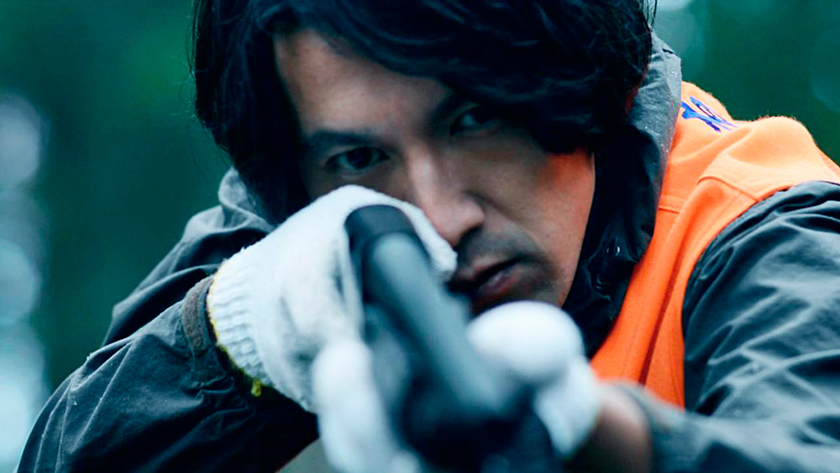“Which is the harmful being?” The question posed in the trailer for Kaneko Masakazu’s The Albino’s Trees is the perfectly loaded question for encapsulating both the inner struggle of the protagonist and the larger conflict between mankind and our surroundings. Rationalizations, as varied as the motivations fueling them, are what drive the story of Yuku, “a hunter who works for animal damage control programmes in the mountains of central Japan. In order to afford the medical bills for the treatment of his mother’s illness, he accepts a lucrative contract to kill a rare, white deer that lives in the forest by a remote village, and whose presence is thought to undermine tourism in the region by the neighbouring town’s bureaucrats….” However, Kaneko begs whether there should be an acknowledgement of something greater, no matter the rationale. Summing up the central theme of his movie, Kaneko states:
Being human inevitably implies the killing of other living things. Yet we often lack the real sense of what killing means, and our awareness of it is usually limited to some numbers on a paper. Indeed, especially for those like me who have been growing up in a metropolis, there’s the tendency to overlook the fact that our everyday life entails the sacrifice of other lives, and we are too often driven by egoism in trying to protect ourselves and those close to us at the expense of others. In this movie, by focusing on the struggle of a man over the life and death of an animal, I tried to express not only the constantly problematic relationship between people and nature, but the importance of thinking about others as well.
With its hauntingly implied pace and cinematography The Albino’s Trees looks to be a uniquely Japanese take on the universal drama of man versus nature; superstition versus rationale; opportunism versus altruism.

